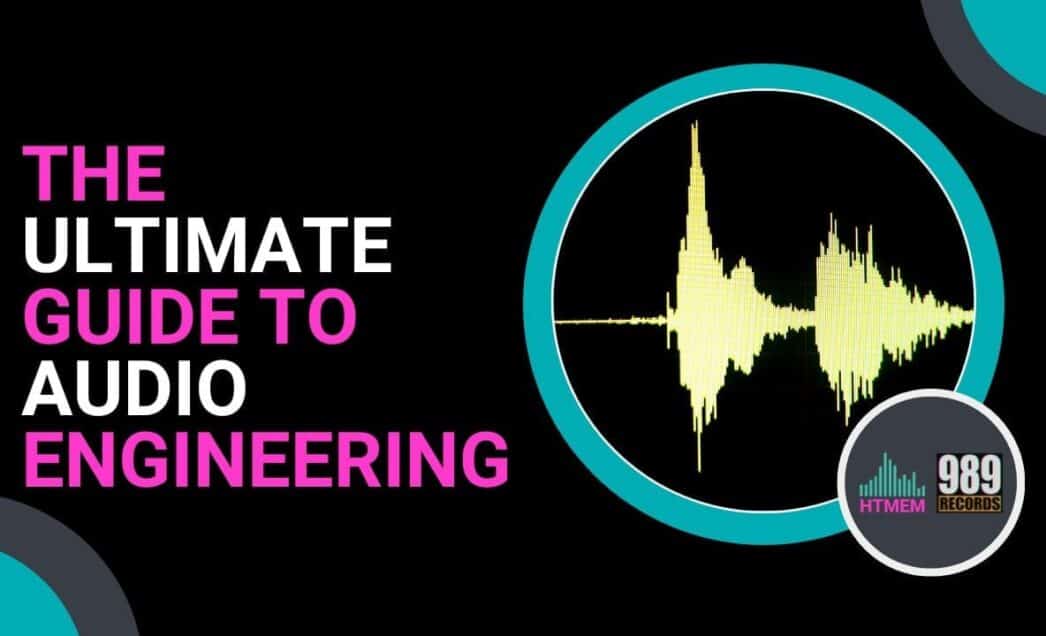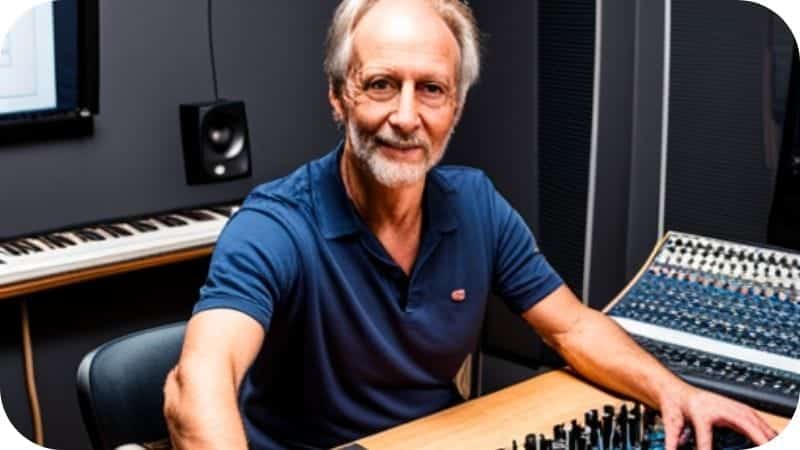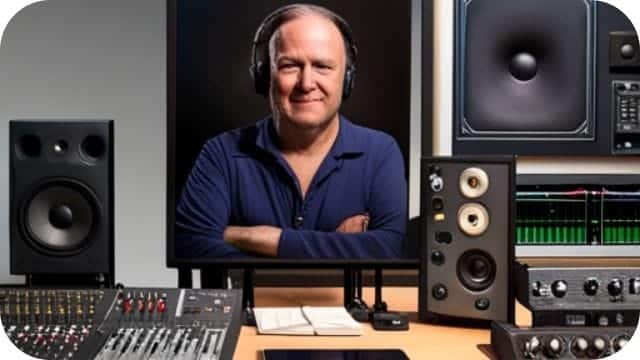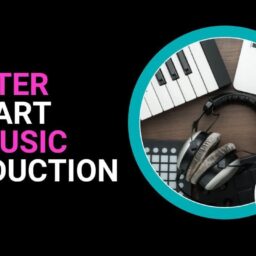Are you passionate about music and sound? Are you aspiring to become an audio engineer? Have you ever dreamt of working behind the scenes, crafting audio experiences that captivate audiences?
If so, a career in audio engineering might be the perfect path for you!
With the perfect blend of art and science, audio engineering offers endless opportunities for growth and creativity.
In this comprehensive guide, we will delve into the world of audio engineering, exploring the science behind sound, the diverse roles in the industry, and the various educational pathways you can pursue. We will also provide valuable tips on how to build a successful career in this ever-evolving field.
So, gear up and get ready to unleash your sound potential!
Learn How to Mix With Our Online Course
Key Takeaways
- Audio engineering is a creative art form requiring technical proficiency and an ear for detail.
- Various educational pathways, networking strategies, and online portfolios are essential to build a successful career in audio engineering.
- Aspiring engineers should stay up-to-date with industry trends and focus on developing their skills.
Table of Contents
Understanding Audio Engineering
– The Science Behind Sound
– The Art of Audio Engineering
Key Skills for Audio Engineers
– Technical Mastery
– Creativity and Adaptability
Diverse Roles in Audio Engineering
– Recording Engineer
– Mixing Engineer
– Mastering Engineer
Pathways to Becoming an Audio Engineer
– Degree Programs and Certifications
– Apprenticeships and Internships
– Self-Learning and Online Resources
Building a Successful Career in Audio Engineering
– Networking and Industry Connections
– Creating an Online Portfolio
Tips for Aspiring Audio Engineers
– Staying Current with Industry Trends
– Continuous Skill Development
Summary
FAQ
– What Do Audio Engineers Do?
– Do Sound Engineers Make a Lot of Money?
– What is the Difference Between a Sound Engineer and an Audio Engineer?
– How Hard is it to Become an Audio Engineer?
– What Roles are Typically Associated with Audio Engineering?
Understanding Audio Engineering
Audio engineering is a multifaceted field that combines the science of sound with the art of manipulating, recording, and reproducing audio for various media channels.
As an audio engineer, you hold the key to transforming raw sound into captivating auditory experiences, whether it’s in a recording studio or a live concert venue. Your technical knowledge and creative vision determine the sound quality of music, films, TV shows, and more.
With a projected growth rate of 21% from 2020 to 2030 and an average annual salary of $49,050, there’s never been a better time to join the ranks of audio engineers in the US.
A strong foundation in the scientific principles of sound, technical abilities to operate audio equipment, a keen ear for detail, and creative prowess in crafting unique audio experiences are all necessary for excelling in the field of audio engineering. We will delve into the following aspects to uncover the mastery it demands:
- The scientific principles of sound
- Technical abilities to operate audio equipment
- Developing a keen ear for detail
- Creative prowess in crafting unique audio experiences
The Science Behind Sound
Audio engineering, also known as sound engineering, revolves around the understanding and application of electronic, digital, acoustic, and electrical principles to manipulate, record, and reproduce sound. This involves delving into the world of sound waves, which are vibrations in the air that travel in a wave-like pattern. Acoustics, the study of sound and its properties, also plays a crucial role in audio engineering, as does the mastery of electronic, digital, and electrical technology. This knowledge is essential for audio engineers, as it enables them to:
- Design headphones
- Design microphones
- Design loudspeakers
- Design other audio equipment
An adept audio engineer comprehends the significance of architectural acoustics and sound systems, which can significantly influence the sound quality in different spaces. They are proficient in various audio recording media, such as:
- Analog Tape
- Digital Multi-Track Recorders
- Digital Audio Workstations (DAWs)
- Audio Software
A deep understanding of signal flow, which is the path that audio signals travel through various devices and processors, is also critical for success in the field.
Learn Acoustic, Analog and Digital Signals
The Art of Audio Engineering
While technical proficiency is vital, the art of audio engineering requires creativity and a keen ear for detail. As a live sound engineer, your job is to ensure the highest sound quality by managing the technical and mechanical aspects of music and sound recording, such as capturing, mixing, and reproducing sound. This requires not only a deep understanding of audio equipment and software but also the ability to think outside the box and experiment with new techniques.
There are several specialized roles within audio engineering, including recording, mixing, and mastering engineers. Each role demands unique skills and expertise, but they all share a common goal: to produce high-quality sound for music production, film, TV, and other media.
As an audio engineer, your creative vision and technical prowess will shape the auditory experiences of countless listeners around the world.
Learn How to Mix Music
Key Skills for Audio Engineers
To thrive in the audio engineering field, you must possess both technical proficiency and imaginative flair. Technical mastery enables you to operate audio equipment and software effectively, while creativity allows you to manipulate sound and create distinctive audio experiences.
Balancing these two skill sets is essential for achieving success as an audio engineer.
In the following sections, we will delve deeper into the technical mastery and creativity required to excel as an audio engineer. We will explore the various skills and techniques that are crucial for producing high-quality sound and navigating the challenges and opportunities that arise in the ever-evolving audio industry.
Technical Mastery
As an audio engineer, having a deep understanding of audio equipment, software, and techniques is crucial for producing high-quality sound. This includes proficiency in digital audio workstations (DAWs), hardware management, mixing techniques, and a thorough understanding of audio editing and processing techniques.
Mastering audio equipment necessitates learning the fundamentals of audio engineering, acquiring hands-on experience with varied equipment, studying techniques such as mixing and mastering, and keeping abreast of industry trends.
Understanding signal flow is another key aspect of technical mastery in audio engineering. It enables engineers to:
- Preserve the highest sound quality
- Make informed decisions regarding the order of effects
- Troubleshoot problems
- Enhance the recording, mixing, and production process
In essence, technical mastery is the foundation upon which your audio engineering career will be built.
Creativity and Adaptability
Apart from technical mastery, creativity is essential in audio engineering as it enables engineers to:
- Explore new and creative approaches to sound production
- Find inventive solutions to technical challenges
- Add an artistic element to audio engineering
- Express their creative flair and create a signature sound
Creativity is a critical component of problem-solving and adds depth and uniqueness to the field of audio engineering.
Adaptability is another crucial skill for audio engineers, as it helps them remain responsive to new concepts and discoveries, refine their sounds, and actively contribute to the creative process.
Being adaptable allows audio engineers to make adjustments and be flexible when needed, ensuring they can meet the unique requirements of each project. In an ever-evolving industry, creativity and adaptability are the keys to staying ahead of the curve.
Diverse Roles in Audio Engineering
In the world of audio engineering, there are several specialized roles, including recording, mixing, and mastering engineers. Each of these roles requires a unique skill set and expertise, but they all work towards a common goal: producing the highest quality sound. From capturing pristine audio in a recording studio to ensuring a live concert sounds impeccable, the work of audio engineers has a profound impact on the listening experience.
We will examine the diverse roles within audio engineering along with the specific responsibilities and skills each position demands. Understanding these varying roles can help you identify the area of audio engineering that aligns best with your passions and talents.
Recording Engineer
A recording engineer is responsible for recording sound in various settings, such as recording studios or live performances. They focus on the technical aspects of sound recordings to ensure optimal sound quality and work closely with musicians, producers, and other audio professionals to create the best possible audio experience for the listener.
The day-to-day routine of a recording engineer varies but typically involves tasks such as setting up microphones, recording audio sessions, and mixing tracks. Whether working in a studio or on location, a recording engineer’s knowledge of audio equipment, software, and techniques is crucial for capturing the highest quality sound during a recording session.
Mixing Engineer
The role of a mixing engineer is to blend and combine audio tracks, adjusting volumes and adding effects to create a balanced and pleasing sound.
Mixing engineers use tools such as mixing consoles, equalizers, compressors, processors, and digital audio workstations to achieve the desired mix. They work closely with the recording engineer and other audio professionals to ensure that all tracks are balanced and properly mixed.
A mixing engineer’s creativity and technical prowess are critical for achieving the best sound quality. Mixing engineers must stay up-to-date with the latest technologies, techniques, and trends to create innovative and captivating audio experiences.
By skillfully blending and adjusting audio tracks, mixing engineers play a crucial role in shaping the final sound of music, films, and other media.
Learn How to Mix Electronic Music
Mastering Engineer
A music producer, who often works as a mastering engineer:
- Prepares audio files for release by adjusting quality, volume levels, EQ settings, and adding metadata
- Is the final step in the audio production process, ensuring that the audio is polished and ready for distribution across various platforms
- Works closely with recording and mixing engineers to fine-tune the overall sound and ensure consistency across the entire project
Mastering engineers utilize tools such as compression, EQ, and stereo imaging to enhance the overall quality of the audio. Their technical knowledge and keen ear for detail are vital for achieving the best possible sound.
Mastering represents the critical last step before releasing music to the public, marking the point of no return. Thus, the mastering engineer’s role is pivotal in the music production process.
Pathways to Becoming an Audio Engineer
Aspiring audio engineers can pursue various educational paths to build their skills and knowledge, including degree programs, apprenticeships, and self-learning. Each pathway offers unique advantages and challenges, and the best choice will depend on your personal goals and preferences. Regardless of the path chosen, dedication to continuous learning and skill development is vital to maintain competitiveness in the audio engineering field.
We will examine various educational pathways for aspiring audio engineers, including:
- Formal degree programs
- Certifications like here at HTMEM
- Hands-on apprenticeships
- Self-learning resources
Comprehending the different options can guide you in choosing the most suitable route to attain your audio engineering career objectives.
Degree Programs and Certifications
Many colleges and universities offer audio engineering degrees and certifications, providing a solid foundation in the field. These programs cover a comprehensive range of topics, from fundamental mixing and recording techniques to more advanced concepts like post-production and music theory. Obtaining a degree or certification in audio engineering can help you gain the technical knowledge and skills needed to excel in the industry.
Notable universities offering degree programs in audio engineering include:
- Berklee College of Music
- Full Sail University
- University of Southern California
- New York University
- Middle Tennessee State University
Audio engineers can also obtain certifications such as Certified Audio Engineer (CEA) and Certified Video Engineer (CEV), which demonstrate proficiency in various aspects of audio engineering. Pursuing a degree program or certification can be an excellent investment in your audio engineering career.
Apprenticeships and Internships
Gaining hands-on experience through apprenticeships and internships can help aspiring audio engineers build their skills and network. These opportunities provide:
- Practical experience
- Exposure to real-world projects
- Learning from experienced professionals
- Applying knowledge in a professional setting
- Job opportunities
- Valuable connections within the industry
Some notable companies offering apprenticeships in audio engineering include Plaid Dog Recording, Tuff Sound Recording, and Steppenwolf Theatre Company. The length of an audio engineering apprenticeship program can vary from a few months to several years. During an apprenticeship, you’ll have the chance to develop key skills such as operating audio equipment, mixing and mastering techniques, understanding sound waves and acoustics, troubleshooting, and more. Apprenticeships and internships are invaluable for building a successful career in audio engineering.
Self-Learning and Online Resources
Many successful audio engineers are self-taught, using online resources and tutorials to develop their skills. Self-learning offers a flexible and personalized approach to education, allowing you to focus on specific areas of interest and learn at your own pace. There are numerous online resources available for aspiring audio engineers, including tutorials, forums, and free learning resources.
Top online resources for learning audio engineering include:
These platforms offer a range of free resources, discussions, online courses, and recommendations for learning audio engineering. By dedicating time and effort to self-learning, you can develop the skills and knowledge needed to excel in the audio engineering field without the need for formal education.
Building a Successful Career in Audio Engineering
Networking and creating an online portfolio are essential for building a successful career in audio engineering.
Building connections with industry professionals can lead to job opportunities and valuable advice while showcasing your work online can help you gain recognition and attract potential clients or employers. By actively engaging with the audio engineering community and promoting your skills and accomplishments, you can set yourself on the path to success.
In the upcoming sections, we will highlight the significance of networking and industry connections, and offer guidance for creating an impressive online portfolio.
Leveraging these strategies can help you carve out a thriving career in the audio engineering industry and leave a lasting impact in the realm of sound.
Networking and Industry Connections
Building connections with industry professionals is crucial for success in the audio engineering field. Networking can lead to job opportunities, collaborations, and career advancement. It also enables you to increase your professional network, stay up-to-date on industry trends, and gain valuable insight and advice from experienced professionals.
Within the audio engineering industry, effective communication skills, such as proficiency in language, active listening, problem-solving, teamwork, flexibility, and a commitment to continuing education, are essential for networking.
Joining online communities, attending networking events, providing critiques on others’ work, engaging with the local music community, utilizing social media, and developing business cards are all effective strategies for networking in the audio engineering industry.
Creating an Online Portfolio
Showcasing your work online can help you gain recognition and attract potential clients or employers. An online portfolio allows you to:
- Display your range of skills
- Highlight your unique style and experience
- Feature a variety of projects that illustrate different genres, formats, and techniques
By doing so, you can effectively demonstrate your audio engineering prowess.
Platforms such as SoundCloud, Carbonmade, Format, Bandcamp, and WordPress are suitable for creating an online portfolio. When selecting works to include in your portfolio, consider:
- a variety of genres
- selectivity
- a limited number of works
- showcasing your process
- highlighting your collaborative skills
A well-crafted online portfolio can be a powerful tool for personal branding and career growth in the audio engineering industry.
Tips for Aspiring Audio Engineers
Staying current with industry trends and continuously developing your skills are crucial for success in this engineering field.
The landscape of the audio industry is in a state of perpetual transformation, continuously shaped by the advent of cutting-edge technologies and innovative methodologies. As an audio engineer, keeping pace with these developments and refining your expertise is imperative to maintain a competitive edge and foster professional growth in this dynamic arena.
We will discuss the significance of keeping up with music industry trends and offer advice for continuous skill development in the subsequent sections. Embracing these strategies can pave the way for your success in this dynamic field.
Staying Current with Industry Trends
Keeping up-to-date with the latest audio technology and techniques is essential for staying competitive in the industry. As new technologies emerge, audio engineers must adapt and learn to utilize these tools effectively. By staying current with industry trends, you can ensure that your skills and knowledge remain relevant and valuable in this ever-evolving world.
Current trends in this industry include:
- Immersive audio
- Spatial audio
- Virtual reality
- AI and machine learning
- Cloud-based audio production
- Artificial intelligence in video and audio production
- 3D sound-field production and design
- Growth of the audio gear market
Staying informed about these trends can help you stay ahead of the curve and remain at the forefront of this industry.
Continuous Skill Development
To remain relevant and excel as an audio engineer, it’s imperative to engage in continuous learning and skill enhancement. Investing time in education and practice sharpens your technical expertise, expands your understanding, and elevates your capabilities within this dynamic industry.
Some effective methods for continuous skill development include:
- Staying up-to-date with the latest trends, techniques, and technologies through online courses, workshops, and industry events
- Specializing in a specific area, such as mastering a DAW program
- Practicing and experimenting regularly with audio projects and different techniques
- Collaborating with musicians, producers, and other audio professionals to gain new perspectives and learn from their expertise
- Seeking mentorship and feedback from experienced audio engineers
Remember, to become an audio engineer, continuous skill development requires a combination of theoretical knowledge, practical experience, and a passion for learning and improving.
Summary
In this all-encompassing guide, we’ve taken a deep dive into the captivating realm of audio engineering, scrutinizing the scientific underpinnings of sound, the various specialized roles in the field, and the multitude of pathways open to those yearning to become audio engineers. We’ve also provided valuable tips on networking, creating an online portfolio, staying current with industry trends, and continuously developing your skills.
As you set out on the path to becoming an audio engineer, it’s important to recognize that achieving success in this arena hinges on a harmonious balance of technical proficiency, creative ingenuity, and the ability to adjust to new situations. By staying dedicated to learning and growth, actively seeking out and engaging with new obstacles, and continuously honing your skills, you can unlock your full potential and make a lasting impact in the world of sound.
Frequently Asked Questions
What Do Audio Engineers Do?
Audio engineers are music industry professionals who specialize in recording, manipulating, mixing, and mastering sound. They use electronic audio gears to capture, mix, and reproduce sound for music, TV, film, and other media channels. Additionally, audio engineers also make sure sound levels are correct and balanced for performers and audiences.
Do Sound Engineers Make a Lot of Money?
Audio engineers typically make salaries ranging from $26.09 per hour to over $130,000 a year. Depending on your experience and location, you can potentially command a higher rate of pay.
What is the Difference Between a Sound Engineer and an Audio Engineer?
Audio engineers are typically associated with studio work, while sound engineers focus on live performances and events. Audio engineers are sometimes also referred to as recording engineers.
How Hard is it to Become an Audio Engineer?
Becoming an audio engineer typically takes two to six years depending on the chosen career path and the amount of practical experience gained.
What Roles are Typically Associated with Audio Engineering?
Audio engineering typically involves roles such as recording, mixing, and mastering engineers.
Suggested Readings
Learn How To Mix Electronic Music
Learn How to Make Electronic Music with Cubase
Unleash Your DJ Skills
Practice and Enjoy!
















